MySpace turns 20: 5 things we still miss in the age of Twitter's meltdown
It's time for a nostalgic look back at the first social network
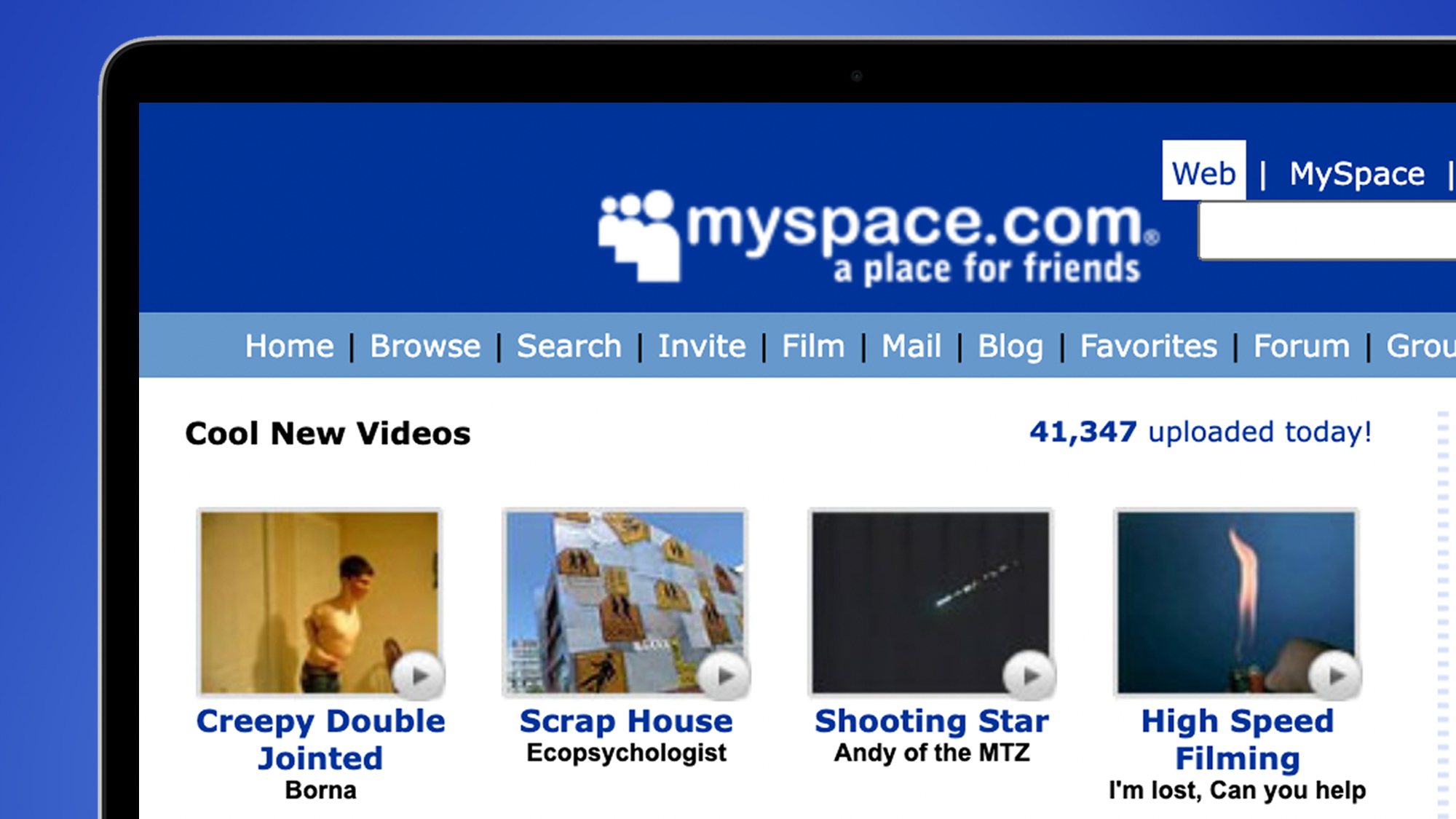
MySpace launched exactly 20 years ago today – so if you remember the pre-Facebook beast of social networks, it's time to join us for a celebration of its charms and idiosyncrasies.
As we survey the charred remains of Twitter, it's easy to forget just how massive MySpace was in the early 2000s. Soon after launching on August 1, 2003, MySpace overtook Google and Yahoo Mail in 2006 to become America's most visited website, according to Hitwise data. For the rest of that decade, it was the world's biggest social networking site.
So what went wrong? A combination of being acquired by News Corp – who filled MySpace new features and ads – plus the rise of Facebook, meant that the 'place for friends' quickly became slightly embarrassing joke. After a relaunch in 2012 that saw it try to be too many things, MySpace went on a slide that ultimately saw it become the niche music website it is today.
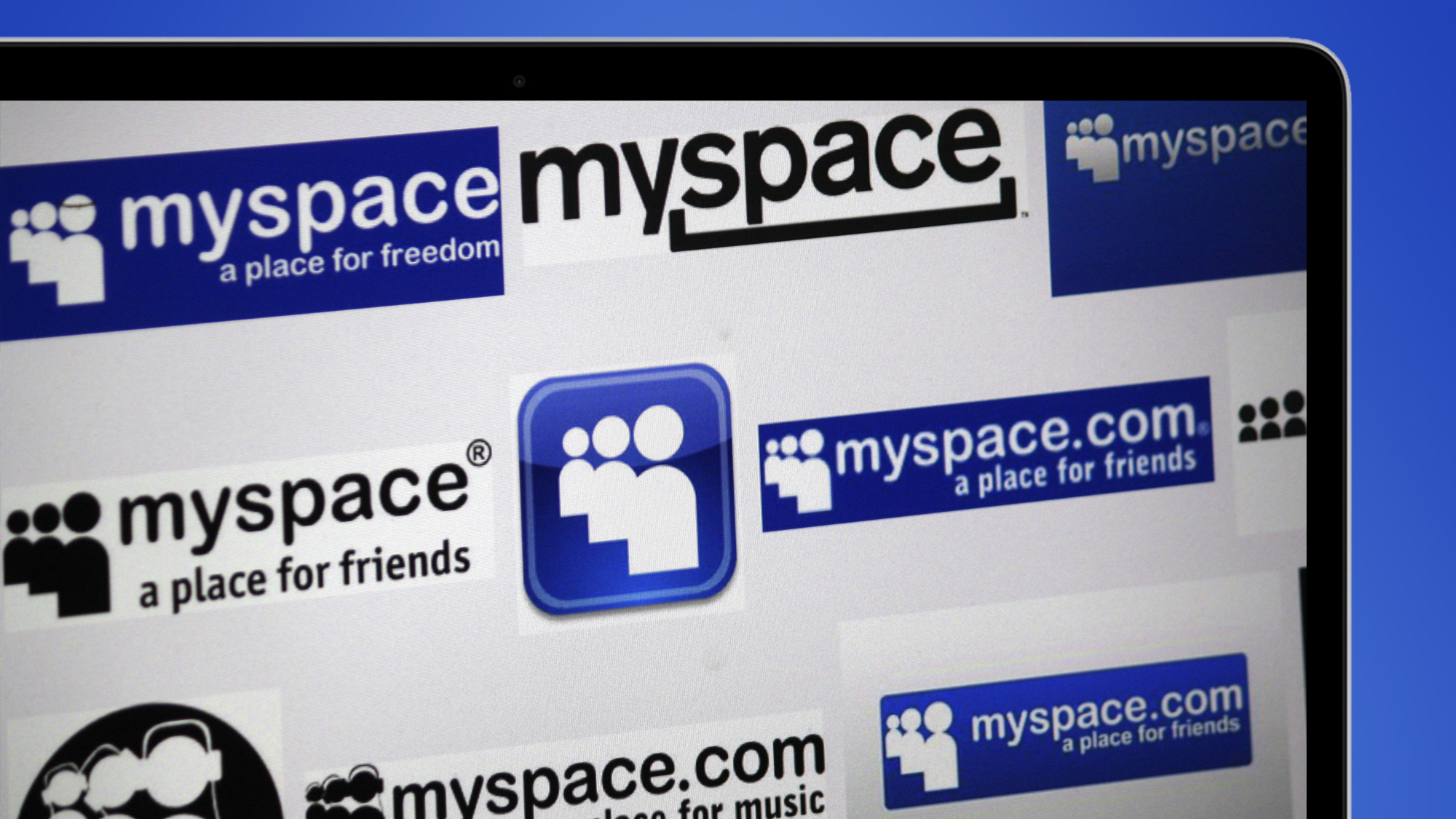
But that doesn't mean we've forgotten the site's early years. Not everyone on the TechRadar team looks back on those early MySpace years fondly, with our US editor in chief Lance Ulanoff recalling that it "it was like peoples' brains had been turned inside out and whatever didn't stick, dropped onto the page and was represented as a GIF".
Many of us do, though, remember picking our Top 8s (the site's weird ranking system for your friends) and decorating our MySpace pages with as many flashing lights as possible. So here are the five main things we miss about the original social network...
1. It was a place for genuine musical connection
MySpace was the best (and for a while, the only) way to feel close to bands I loved.
The year is 2006. Facebook has launched, but that is for ogling the current miens of historic crushes, shallow and impersonal ‘pokes’ plus the deflection of Scrabble requests from people you’re now glad you never dated in high school.
Get daily insight, inspiration and deals in your inbox
Sign up for breaking news, reviews, opinion, top tech deals, and more.
MySpace is not about silly visages and it isn’t about geographical locations (I was trotting around the world having quite the career as a professional dancer thanks very much, but MySpace wasn’t about me). No, MySpace is a place to look out – at bands expressing themselves on a much deeper level about musical influences, pride at upcoming tour dates and crucially, album launches. In the pre-Twitter era, it felt so personal and real.
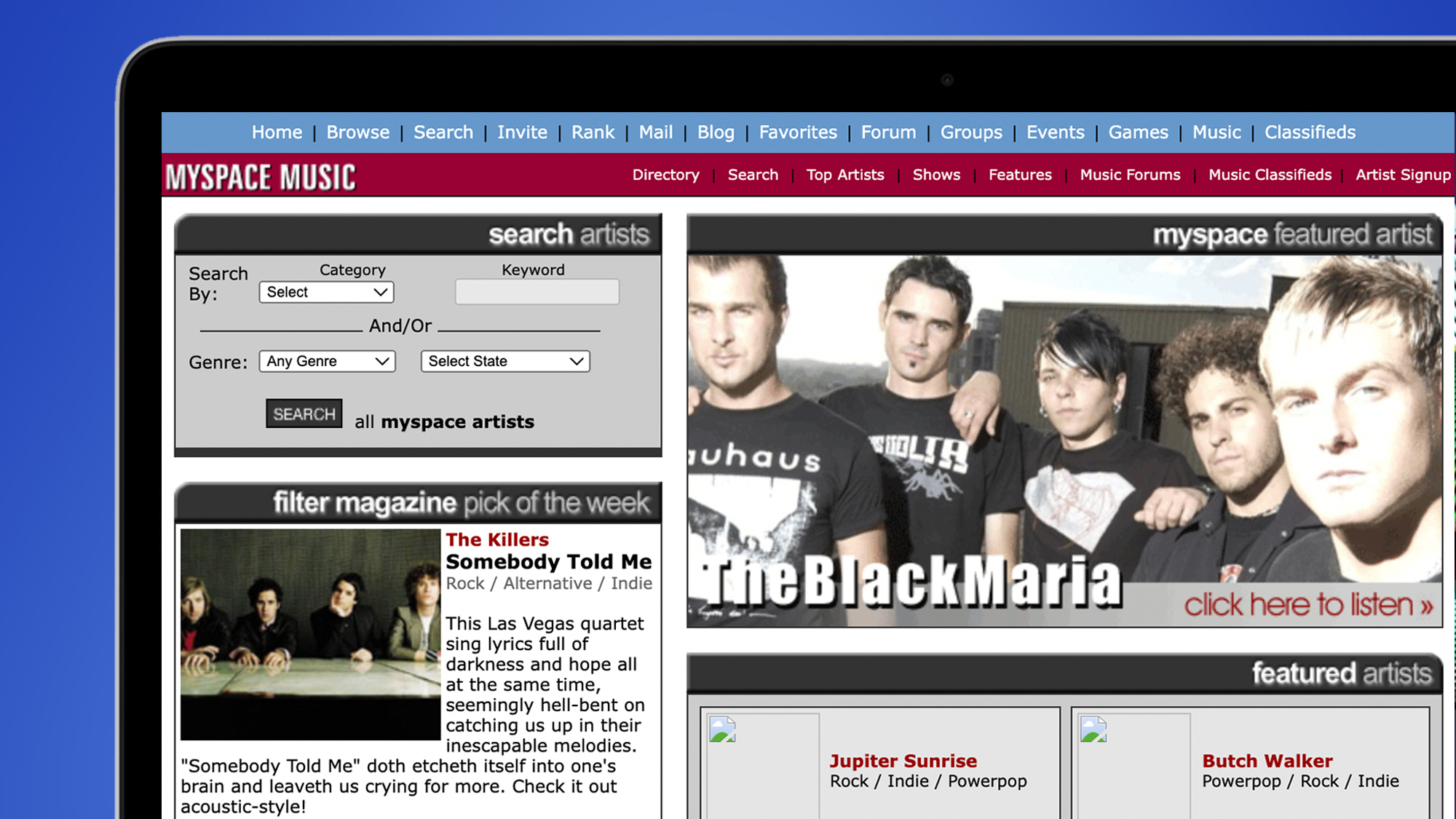
I felt like I understood what each of Patrick Watson’s gifted Montreal-based musicians brought to Close to Paradise, the potentially difficult second album which only went and won the 2007 Polaris Music Prize, beating Arcade Fire’s Neon Bible to do so. I celebrated the win in my small London flat, thousands of miles away from the Phoenix Concert Theater in Toronto.
And I think for a while, only MySpace made this possible.
Becky Scarrott, Senior Audio Staff Writer
2. MySpace made me feel like I was popular
Before Tinder, Bumble, Happn, Hinge and all the rest, there was… MySpace? Well, sort of.
When the social network crashed onto our computer screens 20 years ago, smartphones weren’t a thing, so dating apps didn’t exist. There were dating sites, sure, but the late-twenties-me would never have considered signing up for one.
Of course, I didn’t painstakingly craft my MySpace profile with romance in mind, either. Far from it. When MySpace arrived, I was working as a music journalist and it was the platform’s possibilities as a showcase for new talent that most excited me and my colleagues. Arctic Monkeys famously got their big break via demos uploaded to a MySpace fan page, and I spent many hours trawling the site for the next big thing.
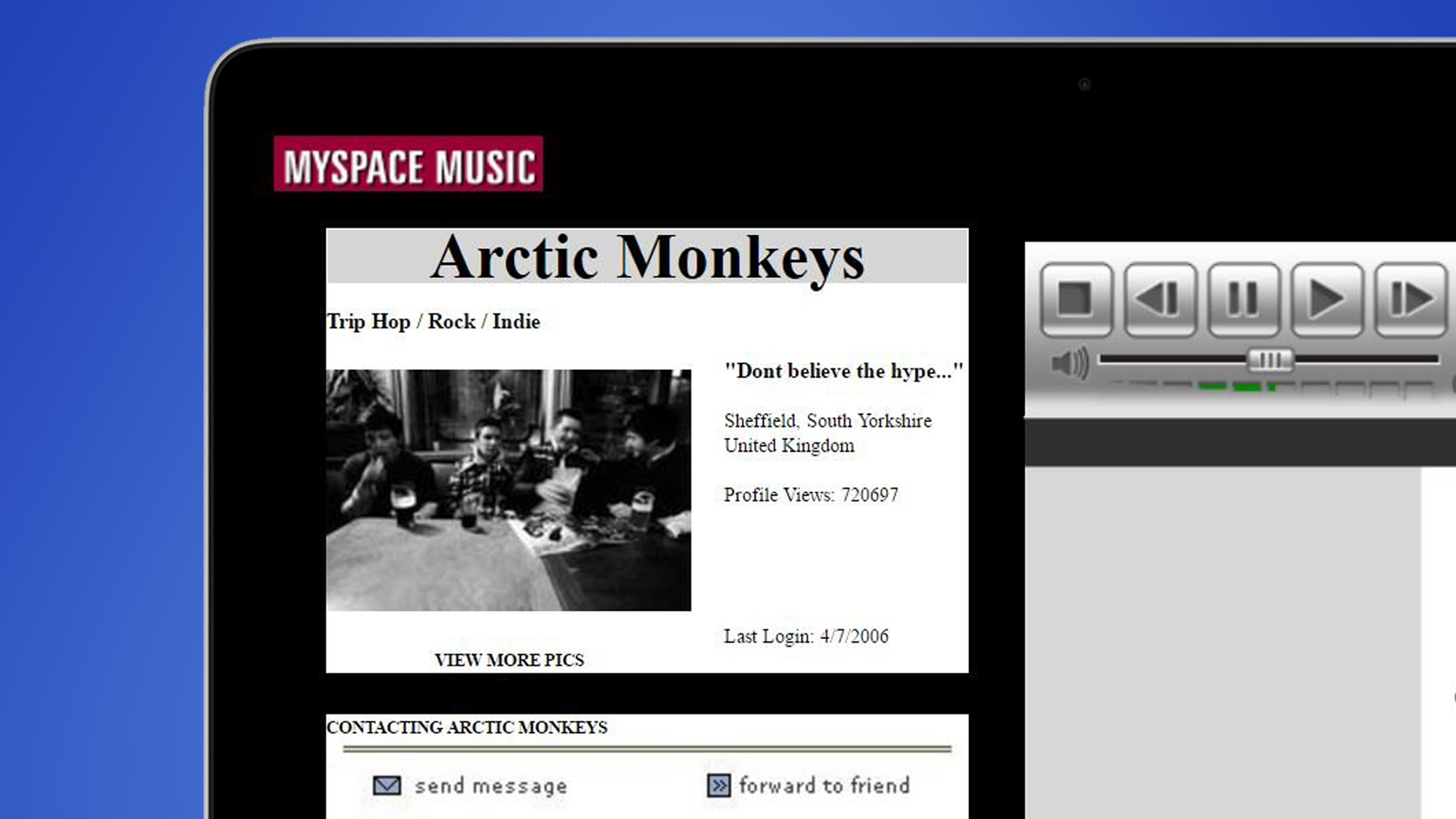
I also spent many hours chatting to people on it when I should have been working – and that was solely because this newfangled social media thing made it possible for a socially awkward individual like me to actually make friends (in a sense).
I had help here: my workmates were all far cooler and more sociable than me, so it was very easy for me to garner huge numbers of Connections simply by piggybacking on their popularity. And in no time at all, I was the king of social media! The popular kid I’d always wanted to be at school! Look, I’ve got 200 friends on MySpace! Take that, school bullies!
The high, for me, was also the low. I got chatting to a friend of a friend of a friend, we hit it off and, somehow, we agreed to go on a date. Obviously this was a bad idea, because chatting to someone online is not the same as talking to them in real life, particularly for a socially awkward individual like me. The date was a disaster and I never tried that again. I still liked pretending I had hundreds of friends, though.
Marc McLaren, UK Editor in Chief
3. It actually taught me to code
MySpace was my first interaction with a social media site. Outside of online chat rooms, like MSN Messenger, it offered a space on the web that you could own – much like a blog page.
I was encouraged to sign-up for it in school by friends and, caving under the pressure, made a profile. Much like Messenger, where it was ‘kewl’ (why did we all type like this?) to use the plugin that showed what music you were listening to, MySpace also had a dedicated music player. It was a space for self expression, which meant that changing the style of your profile page with HTML and CSS became a big part of it.
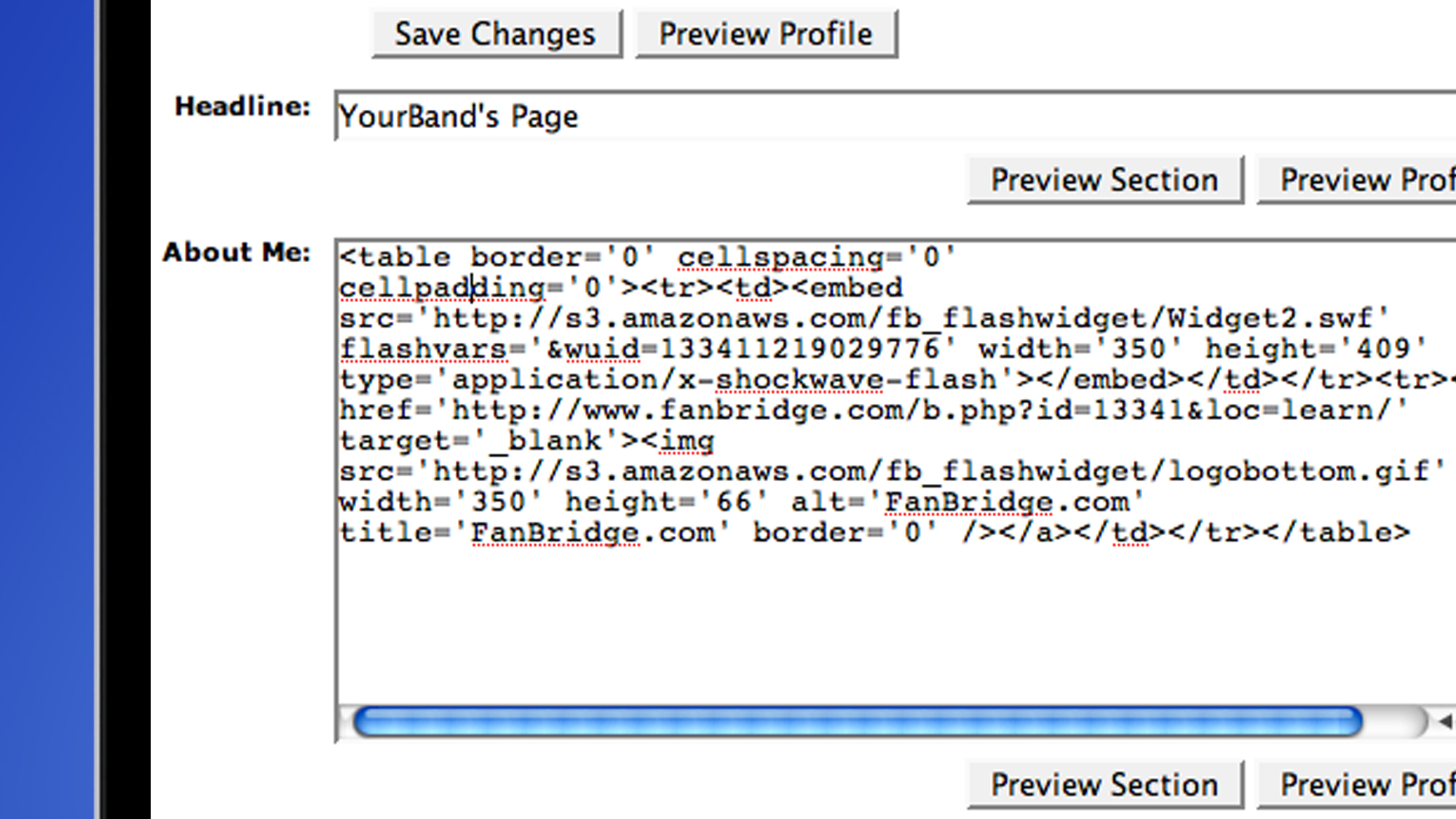
This was the early 2000s, when I didn’t know a lot about Web 1.0 or coding, and I wasn’t going to buy a MySpace layout, so I eventually worked out the basic prompts needed to hide my top eight friends as well as to add in some funky widgets that made my comments become visible again using JavaScript or Flash.
I’m probably guilty for all the bugs that were on the site back then – sorry, Tom!
Amelia Schwanke, Senior Editor for Home Entertainment
4. It was my favorite internet echo chamber
Many people, my colleagues included, remember discovering great bands and exciting new music on MySpace. But for me, my memories of MySpace is one of echo chambers and tribalism, albeit with a degree of fondness.
I was 15 years old, deep in a phase of palatable punk-rock, wallet chains and baggy jeans. All my friends were of a similar disposition: skateboarding, playing in local bands, and using MySpace to chat online outside of school. Via the magic of HTML and MySpace’s feature that allowed you to play a song automatically when you visited a page, scrolling through my top friends on MySpace would have assaulted your ears with a variety of alternative classics from Sum 41, Iron Maiden, Green Day, Rage Against the Machine, Korn… you get the picture. A mixed bag of sub-genres you could today throw into a Spotify playlist titled simply ‘rock’.
Our school was split right down the middle: the alternative kids took MySpace, the sporty kids who listened to pop chose Bebo, and never the twain shall meet. Rather than using MySpace as a tool to discover new music, it was a safe space to express our fondness for the music we already knew and loved. I remember MySpace fondly as my first ‘virtual hangout’ space, a village hall tailored to the interests of myself and my friends.
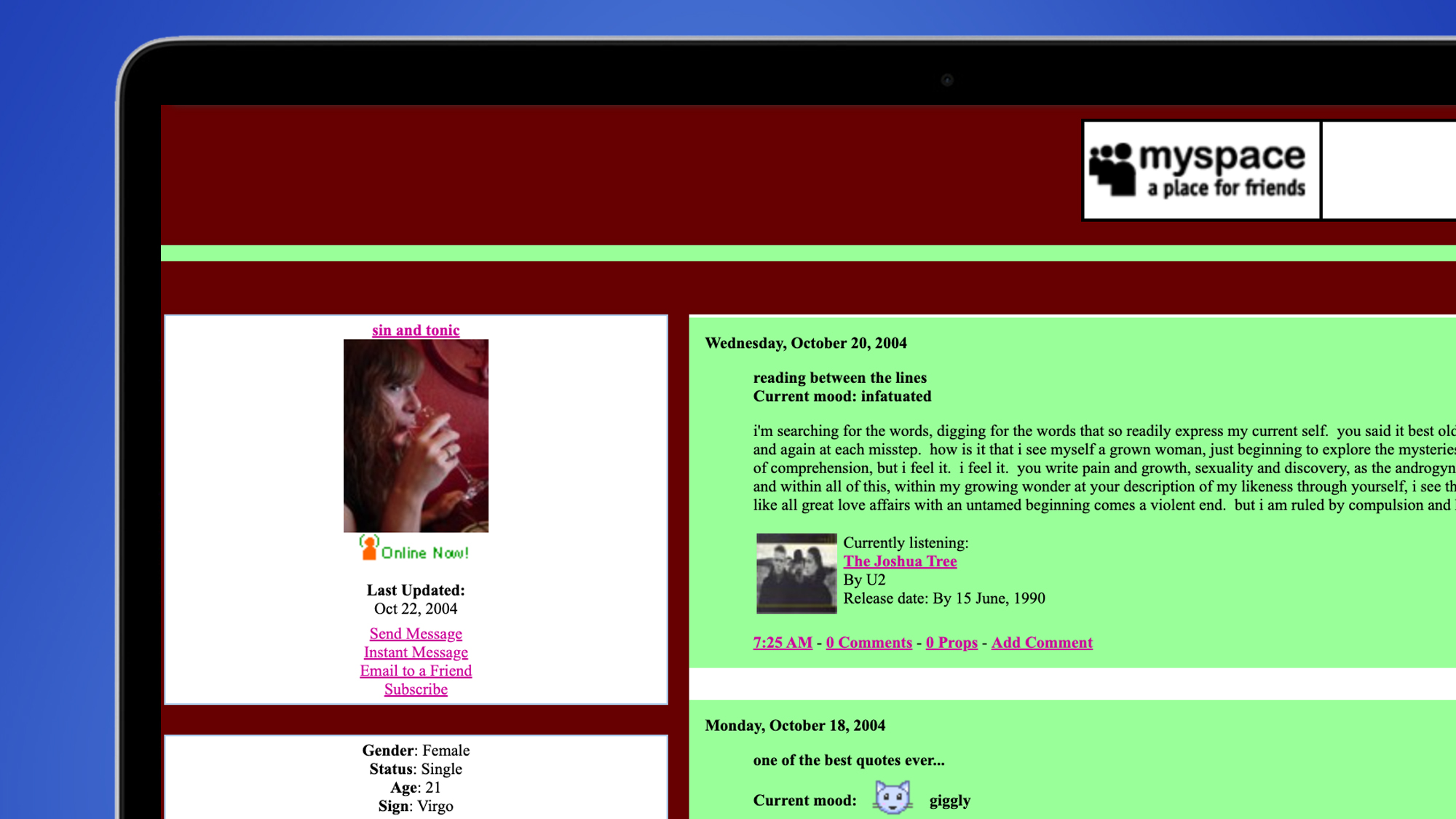
I switched to Facebook after all my friends did the same, and was disappointed at the lack of personality I was able to inject into the look and feel of my Facebook page. Where were my poorly-animated flames? The auto-playing music? Where was Tom?
I didn’t know it then, but that was the start of my experience with the Corporate Internet, a move away from spending my time online with MySpace, HTML and link-surfing through the old Blogosphere, and more time spent in boxes set up by billionaires scraping our data for advertisements. When I remember MySpace, I remember the internet’s halcyon days, the advent of social networking, and sticking it to the man, Jack Black-style. Rock on, dudes.
Matt Evans – Fitness, Wellness and Wearables Editor
5. It was the last age of social media innocence
It's hard to say exactly when social media became the performative, carefully stage-managed PR campaign that it is today, but MySpace reminds me of the innocent time before mass pile-ons and billionaire acquisitions. It was a bit like discovering your first favorite dive bar, before an inevitable takeover turned it into another sterile chain covered in fake graffiti.
Before TheFacebook.com had escaped Harvard, MySpace was home to the photo albums that the unsuspecting pioneers of the early noughties would later look back on with fondness and, perhaps, more than a little regret.
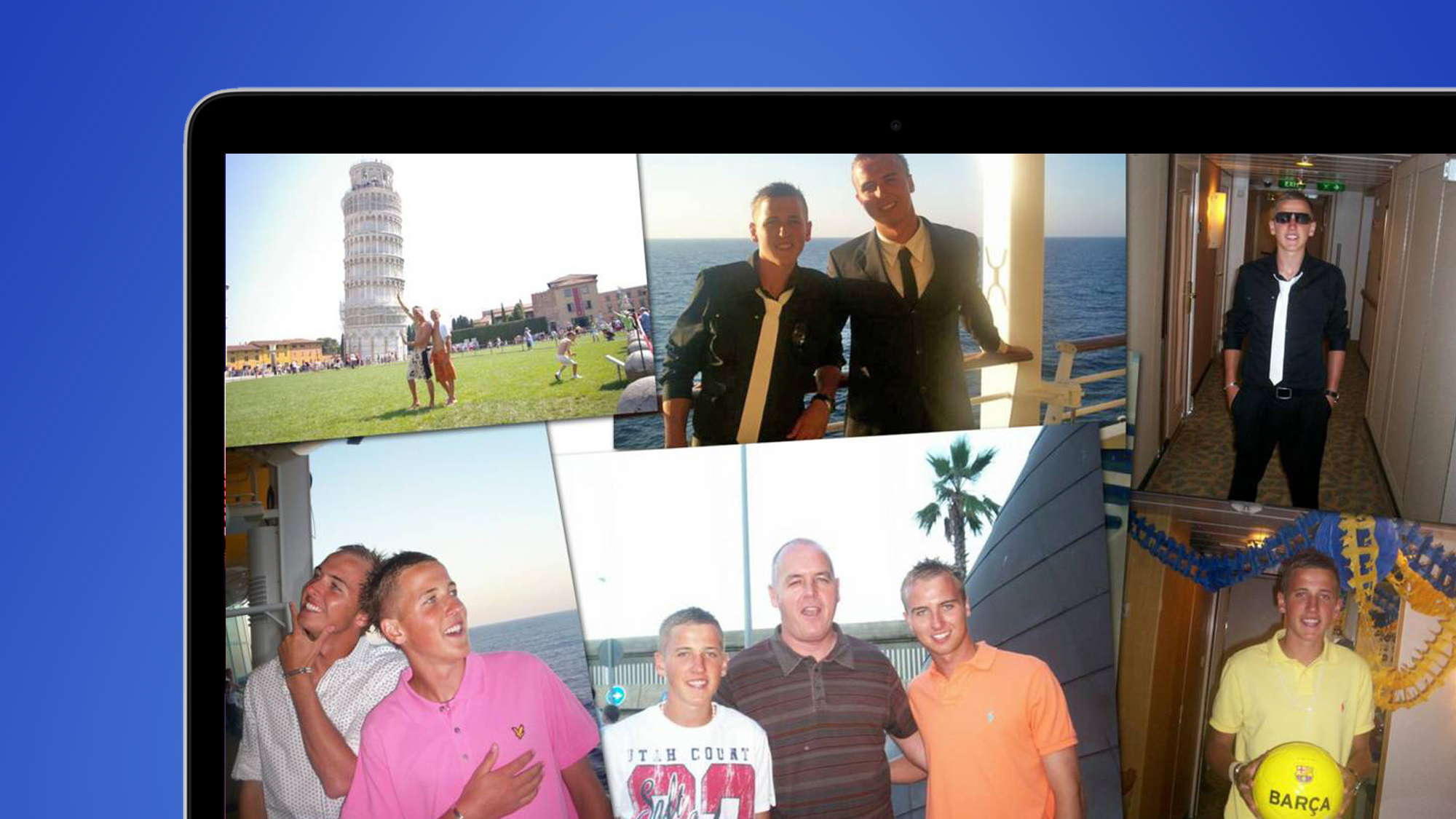
A case in point are the accounts and grainy photos from some today's biggest Premier League soccer players, which have resurfaced to provide some excellent WhatsApp ammunition for their fellow team-mates. The cruise album above from what appears to be soccer player Harry Kane is a particularly fine example.
Still, the good news for anyone who uploaded some slightly embarrassing songs, photos or videos to MySpace before 2015 is that they've probably all disappeared – back in 2019, the social networking site blamed a faulty server migration for the permanent loss of 200TB of data from its first decade of existence. Cue a collective sigh of relief from everyone who'd forgotten all about their early MySpace adventures.
Mark Wilson, Senior news editor

Mark is TechRadar's Senior news editor. Having worked in tech journalism for a ludicrous 17 years, Mark is now attempting to break the world record for the number of camera bags hoarded by one person. He was previously Cameras Editor at both TechRadar and Trusted Reviews, Acting editor on Stuff.tv, as well as Features editor and Reviews editor on Stuff magazine. As a freelancer, he's contributed to titles including The Sunday Times, FourFourTwo and Arena. And in a former life, he also won The Daily Telegraph's Young Sportswriter of the Year. But that was before he discovered the strange joys of getting up at 4am for a photo shoot in London's Square Mile.
- Amelia SchwankeSenior Editor UK, Home Entertainment
- Becky ScarrottAudio Editor
- Marc McLarenGlobal Editor in Chief
- Matt EvansSenior Fitness & Wearables Editor